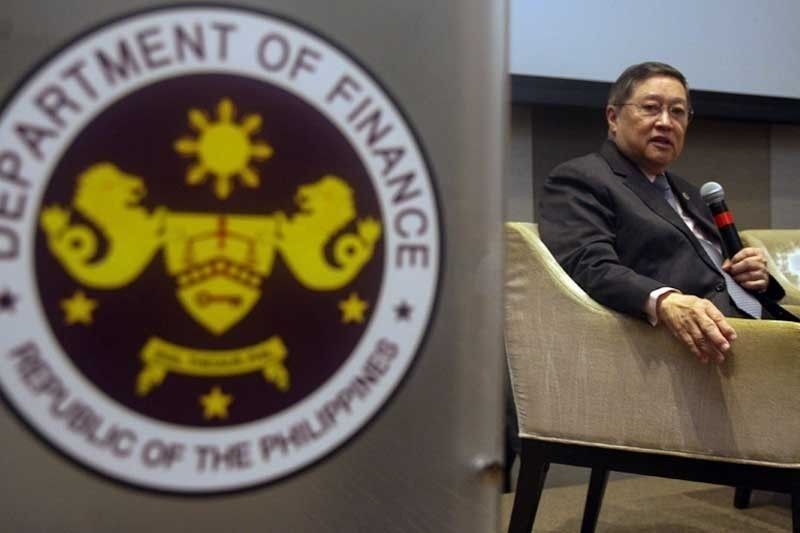Economic team seeks Congress help in securing ‘A’ credit rating

MANILA, Philippines — Economic managers vowed to work closely with the Senate and the House of Representatives in ensuring speedy action on legislative proposals that would help the Philippines attain the much coveted “A” rating from international credit watchdogs.
Finance Secretary Carlos Dominguez III together with other economic managers from the Department of Budget and Management (DBM) and the National Economic and Development Authority (NEDA) would actively engage the leaders and committees of both the Senate and the House in providing them with vital and timely inputs on the various economic and fiscal bills pending in the 18th Congress in line with President Duterte’s goal of providing a safe and comfortable life for every law-abiding Filipino.
In a letter jointly addressed to Senate President Vicente Sotto III and House Speaker Alan Peter Cayetano, the economic managers also proposed holding informal or technical-level meetings of the Legislative-Executive Development Advisory Council (LEDAC) more often to ensure better working relations with the lawmakers.
The letter was also signed by Socioeconomic Planning Secretary Ernesto Pernia and then DBM officer-in-charge Janet Abuel, who has since been replaced by Wendel Avisado.
The cabinet secretaries underscored “the need for more clarity on the basis where the executive could support bills with fiscal or economic implications” to manage the expectations of lawmakers on such measures.
“The DOF, DBM and NEDA look forward to working more closely with the 18th Congress, under your leadership, to better align the priorities of the legislature with the President’s development agenda. This is to ensure that we can move our country forward and achieve our Ambisyon Natin 2040 objective of becoming a high-income country where poverty is eradicated,” the letter said.
For one, the finance department has reorganized to assign more full-time directors and staff to engage with the Congress on a regular basis.
Continuing the fiscal reforms proposed by the Duterte administration would be a good start in setting in motion this close collaboration between the Executive and Congress to ensure that the Philippines gets “a good chance” of reaching an “A” credit rating in two years’ time,” they said.
“Securing an A investment-grade credit rating “means that the government, businesses, and ordinary Filipinos can borrow more cheaply to invest, create jobs, and improve their lives. Thus, pursuing these reforms is not just about getting a credit upgrade. It is about upgrading everyone’s life,” the economic team said.
The Philippines bagged a credit rating upgrade from S&P Global Ratings to BBB+ or a notch below the “A” rating last April amid the country’s above-average economic growth, healthy external position along with sustainable government finances.
In their letter, the economic managers pointed out that “effective collaboration between the executive and legislative branches” during the previous Congress was crucial in the passage of key economic and fiscal reforms in support of the President’s 10-point socioeconomic agenda.
These reforms include the Tax Reform for Acceleration and Inclusion (TRAIN) Law, Estate Tax Amnesty, Tobacco Tax Reform, Rice Liberalization, National ID System, Ease of Doing Business, and Universal Health Care.
“These game-changing reforms led to a credit rating upgrade from S&P. The upgrade, from BBB to BBB+, is a strong vote of confidence in the Duterte administration’s reform agenda. This would not have been possible without the strong support of the Congress,” the economic managers said.
Apart from ensuring that Congress pass more game-changing reforms needed to secure an “A” rating for the Philippines, the economic team also underscored the need to guarantee fiscal discipline.
“This means taking a strong position on what is not in the best interest of the people as a whole. While some bills seek to benefit some sectors, they take away money from millions of other poor and jobless people who also deserve our help,” they said.
The economic team also bared their position on the grant of incentives; the creation of more freeport zones; the imposition of guarantees or quotas on lending, credit, and other artificial barriers on resource allocation, including price controls and ceilings; mandatory addition of programs to the national budget; earmarking of funds; and the creation of new government corporations or departments.
- Latest
- Trending



























